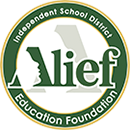As we wave goodbye to the excitement and unpredictability that often characterizes October in the educational realm—affectionately dubbed "Shocktober" by many educators—we turn our focus towards finishing the fall semester strong. Shocktober can bring a mix of high energy, enthusiasm, and challenges as students and teachers alike settle into the academic year. However, overcoming it with grace sets a positive trajectory for the remainder of the semester. Alief ISD's Prevention and Safe Schools (PASS) department offers invaluable advice for educators navigating this period. Here are five essential tips for effective classroom management through October and beyond, ensuring a productive, inclusive, and engaging learning environment for every student.
1. Structure, Structure, Structure
The foundation of a successful classroom environment is a solid structure. PASS emphasizes the importance of not just planning lessons, but also planning for behavior management. Tightening up classroom systems and reiterating behavioral expectations for all activities and transitions can significantly improve the classroom atmosphere. Consistency and predictability can help students feel secure and understand what is expected of them, thus minimizing disruptions.
2. Reward, Reward, Reward
Incorporating the spirit of the season, educators are encouraged to provide both tangible and verbal rewards to students who exhibit desirable behaviors. By naming the specific behavior, complimenting the student according to the campus Guidelines for Success, and celebrating both major and minor successes, teachers can create a positive reinforcement loop. "Treats not tricks" can serve as a fun and motivating mantra for the classroom during this period.
3. Stop, Take Time to Connect
Connection is key in any educational setting. PASS suggests being intentional about creating opportunities to bond with students. Engaging them in discussions about fall favorites, winter activities, and other seasonal topics can help make learning more relatable and enjoyable, fostering a stronger teacher-student rapport.
4. Teach the WHOLE Child
It's crucial not to overlook Social Emotional Learning (SEL) and development. Facilitating social skills through orchestrated conversation and opportunities for students to interact is crucial. Incorporating pair shares, group projects, and learning clusters into instruction not only enhances academic learning but also supports students' social growth.
5. Be Trauma Informed
It's important to recognize that not all students may share the same enthusiasm for holiday seasons due to various reasons. Being trauma-informed means avoiding language that assumes universal sentiments about the holidays and being mindful of student demographics. Instead, teachers can focus on how break periods can be used for trying new activities, setting goals, or simply taking the time to relax and reset.
By adopting these five strategies, educators can transform the post-Shocktober period into an extraordinarily productive and positive time. As the fall semester continues, these tips from Alief ISD's PASS offer a roadmap for creating a nurturing, effective, and inclusive classroom environment that accounts for every student's needs and fosters a strong finish to the semester.

